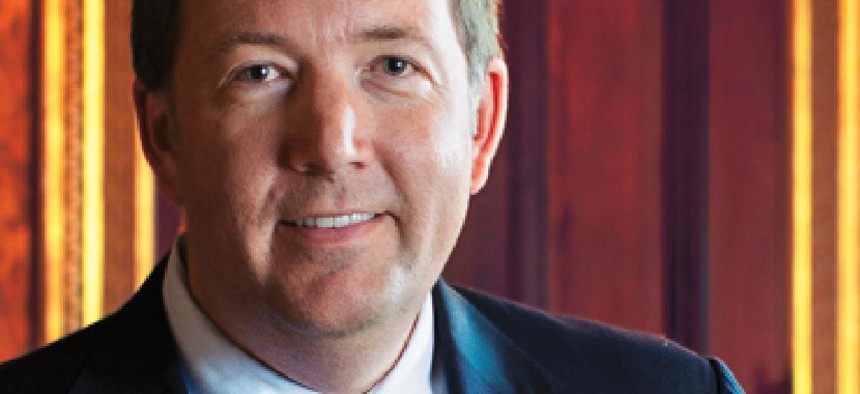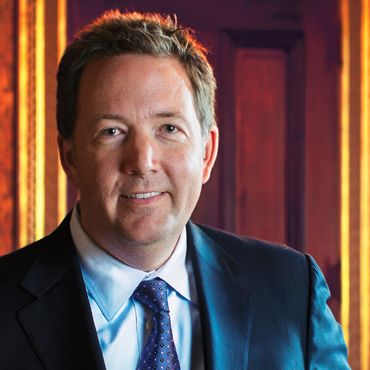Key vacancies challenge Obama management plans

Several leadership slots at OMB and other agencies remain open as the administration moves forward with a plan to overhaul management policies.

Federal CIO Steven VanRoekel is serving double duty as acting deputy director of management.
The Obama administration is moving ahead with a plan to overhaul government management policies, but could be hampered by a depleted roster of senior leaders at OMB.
The management rethink is taking place with top level vacancies at the Office of Management and Budget. Federal CIO Steven VanRoekel is serving double duty as acting deputy director of management (DDM). Controller Danny Werfel is detailed to the IRS as acting commissioner, dealing with the aftermath of revelations that officials there unfairly targeted conservative groups seeking tax-exempt status. The administration announced plans Aug. 1 to nominate Clinton-era deputy director for management John Koskinen to head the IRS, there's no word on when Werfel might return to OMB. (The agency did not reply to a request for comment.) Additionally, the post of associate director for performance and personnel management is being filled on an acting basis by a career official.
The recent rollout of plans for a management rethink suggest that a DDM appointment is in the offing, said Jonathan Breul, who served for 10 years as a senior advisor to the DDM at OMB, and is currently adjunct professor at the Georgetown Public Policy Institute. However, he and others noted that the absence of a confirmed occupant of the post can have negative consequences for the ability of an administration to execute its priorities across government.
At OMB, the director is focused squarely on activity at the White House and on the budget. The DDM, said Breul, "handles everything else – the coordination councils, all the statutory offices. It's a broad activity that includes financial management, procurement, IT, regulations inspectors general. There's not an activity that doesn't fall under the DDM."
Robert Shea, who served as associate director for OMB administration and government performance during the George W. Bush administration, said it's harder for an acting DDM to exert influence over senior agency officials. "Making sure that all these different offices that are their own little fiefdoms can cooperate is the critical role of the DDM," said Shea, now a principal at Grant Thornton. "An acting DDM has a harder time doing it. He has an even harder time of it with acting subordinates, and it's a challenged that needs to be addressed."
Successful collaboration among agencies is a potential casualty of the lack of a Senate-confirmed DDM. As chair of the President's Management Council, the DDM is tasked with settling turf battles among agencies, managing cost-cutting initiatives, sharing best business practices, and communicating management priorities. "Collaboration is not a natural act," Breul said. "It requires good and effective leadership. That's why the DDM is so important. Left to their own devices, everyone retreats into their own silo."
And the relatively small size of OMB makes it tricky for officials to pivot to new duties amid senior vacancies, Breul said, and the institution of 10 furlough days at OMB under sequestration is not helping matters.
The constrained budgetary environment makes filling top management slots more of an imperative, said Max Stier, president and CEO of the Partnership for Public Service. His group is coming out with its own management reform agenda next week. Stier praised Obama's previous DDM, Jeffrey Zients, as well as the officials in acting roles on the management side of OMB. But, he said, "a short-term leader is going to be rewarded for crisis management, not for the long-term health of the organizations they run."
In addition to top-level vacancies, the clock is running on the administration's ability to institute meaningful management reform. The Clinton and George W. Bush administrations had management plans in place within about a year of taking office. "This is a second-term president, already seven-plus months into that second term," Stier said.
There's no clear timetable for filling the DDM post and other vacant positions. VanRoekel has been touted as a candidate for the permanent position. Breul said that VanRoekel's relationship with director Sylvia Burwell and his affinity for the technological focus of the Obama management agenda make him a strong candidate. Stier also cited VanRoekel's work as CIO of the FCC as a strength, and added that he thinks it should be a requirement for all senior OMB personnel to have spent some time on the front lines of an agency. Werfel, whose stint heading up the IRS appears could be nearing an end, has also been suggested for the job. There's also the possibility that the administration will choose an outsider.
Moreover, it's possible that whoever is named to the DDM post won't be long for the job, if he or she is called to plug a leak in a crisis somewhere else in the administration. Breul said he had a Senate-confirmed boss for about half of the 10 years he worked at OMB. "This is a chronic problem, particularly at a place like OMB. When you've got real talent, they move in many directions."
NEXT STORY: Is OASIS too complex?



